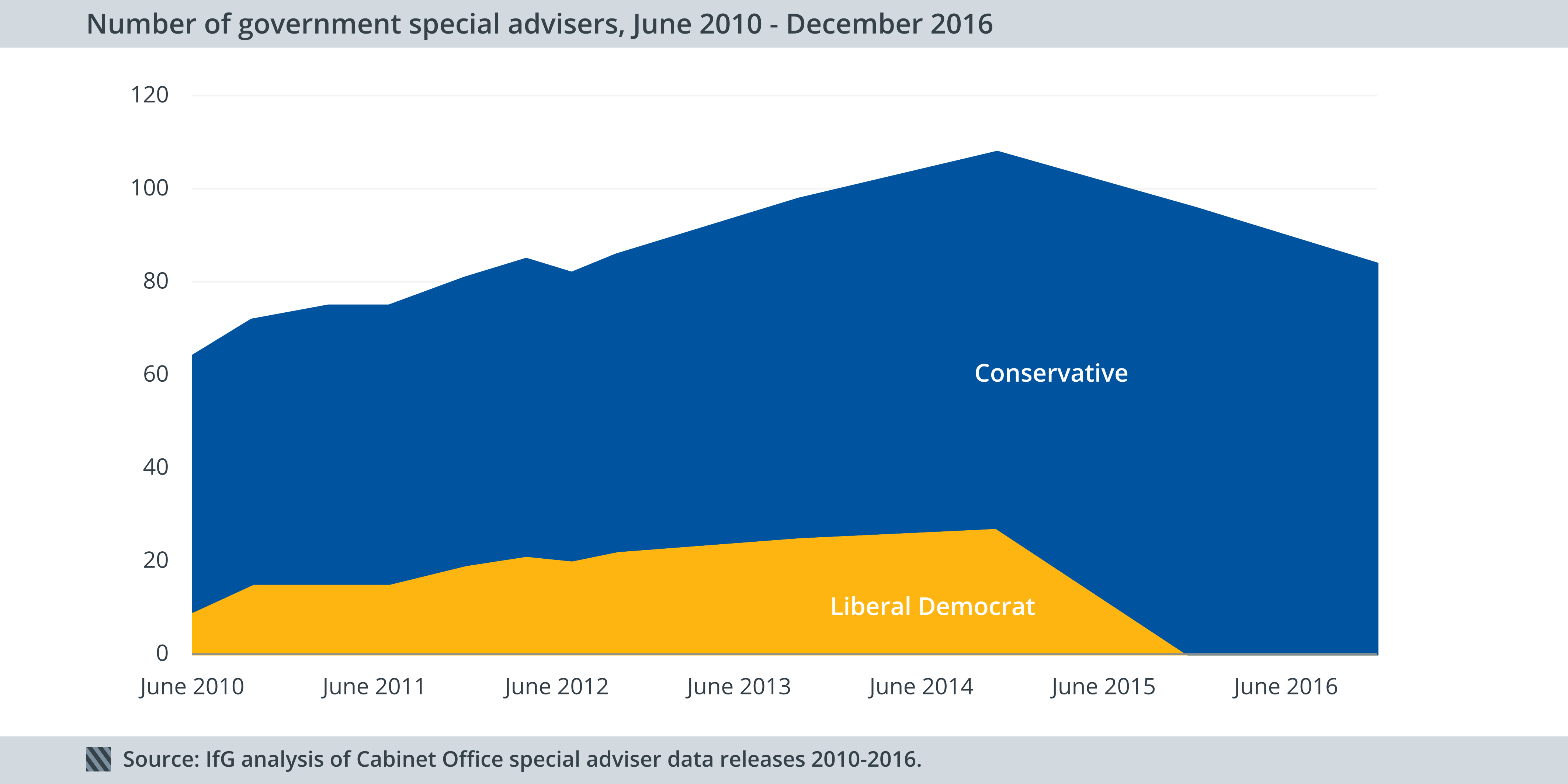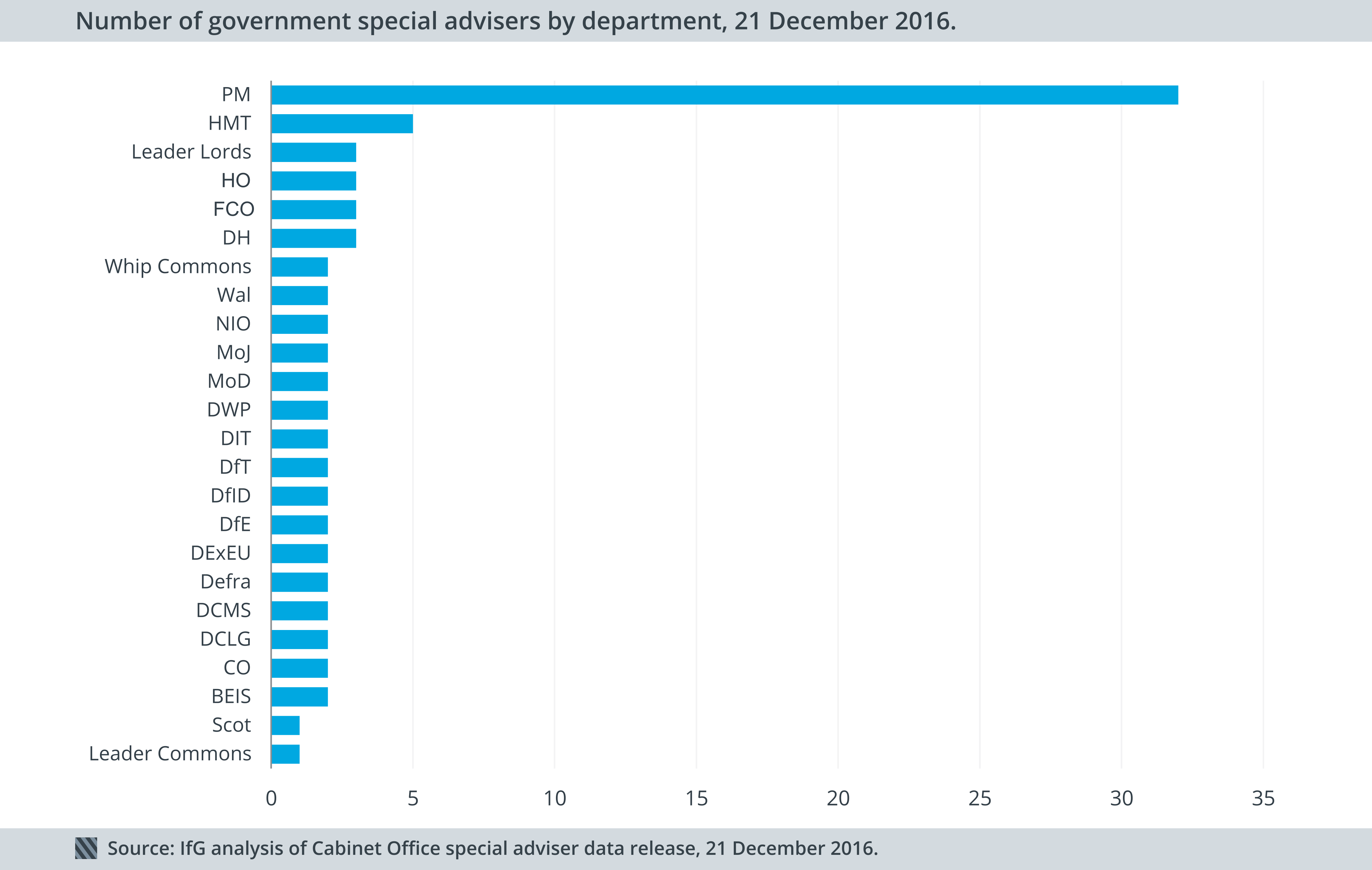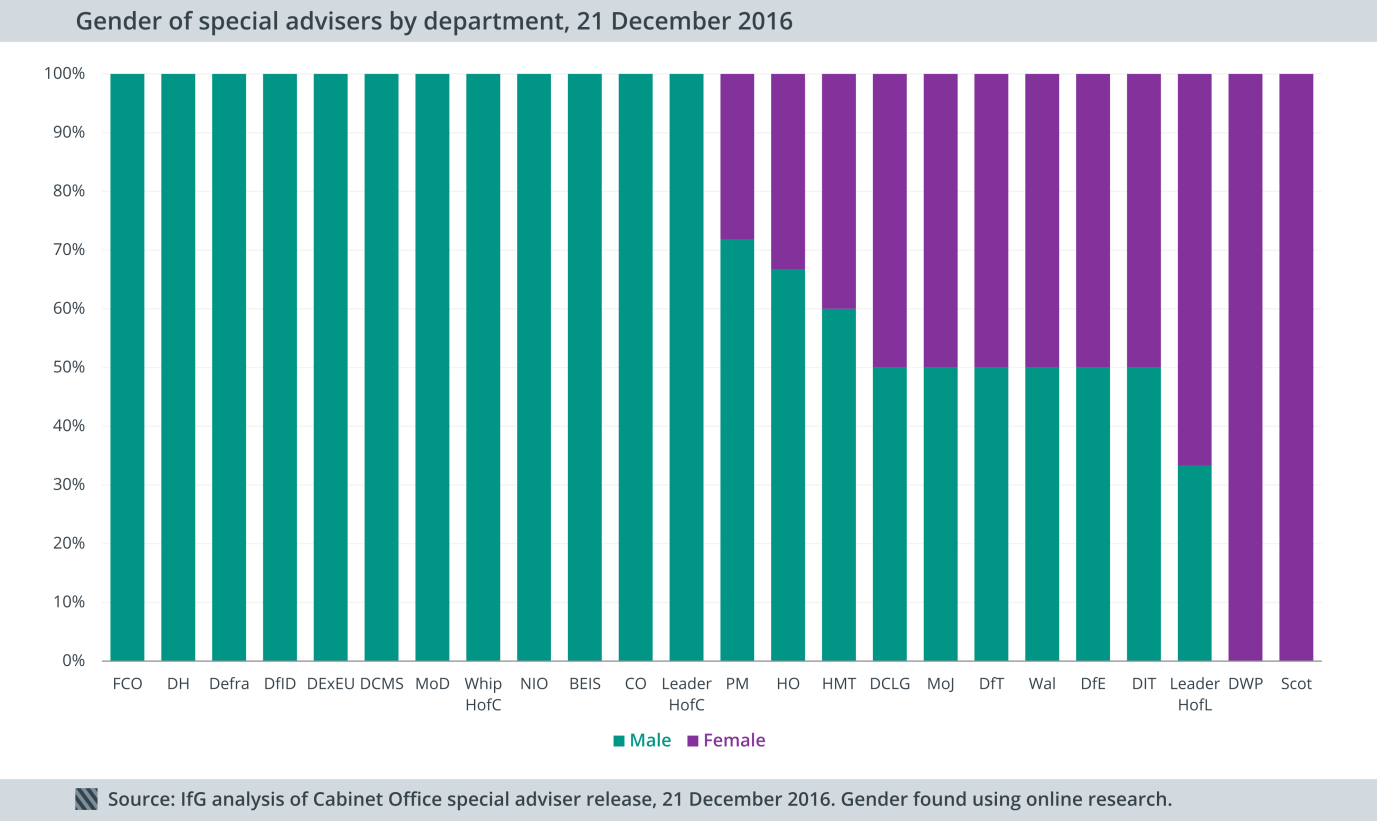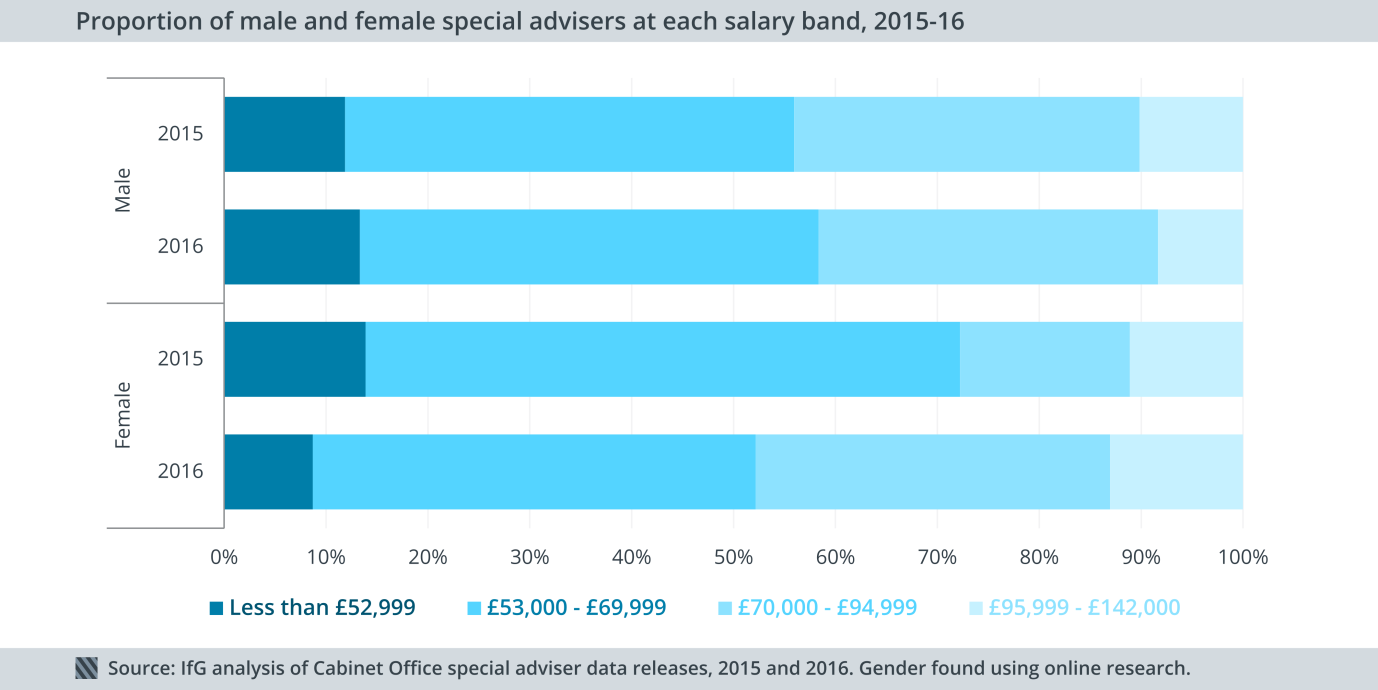The latest data on special advisers (spads) reveals that overall numbers have dropped under Theresa May, but those remaining in post are earning more and are more likely to be men. Robert Adam looks at the figures.
The number of government special advisers has declined since 2015

The overall number of special advisers in government has declined, from 95 in December 2015 to 83 in December 2016. However, the number of Conservative spads remains higher than it was in the final year of the Coalition Government.
In 2010, the Conservative Party promised to reduce the cost of politics by cutting the number of spads, but the politics of the Coalition Government led them to reverse that commitment and increase the number employed in every year up to 2015.
The Prime Minister’s Office has the most special advisers

The Prime Minister’s Office employs far more special advisers than any other department. Theresa May has 32 spads, the same number as David Cameron had in 2015.
The majority of secretaries of state have two spads, typically with one focused on media and one on policy. This pattern remained largely unchanged in 2016, except for the Chancellor of the Exchequer. George Osborne’s prominent role in Cameron’s Cabinet meant that he had nine special advisers in 2015. His successor Philip Hammond has only five.
Most special advisers earn between £53,000 and £70,000 a year

Spads earn between £53,000 and £70,000, significantly above the national average, which means their salaries often draw criticism, despite the important work they perform.
The distribution of salaries has increased slightly since 2015, meaning more spads earn above £70,000 relative to other salary bands, but this is largely because the total number of spads has decreased. Comparison with earlier years is not currently possible because the paygrades used before 2015 are different to those used since.
Fiona Hill and Nick Timothy, the joint Chiefs of Staff to the Prime Ministers, are the top earners on £140,000 each. We cannot say who earns the least because the Government does not report salaries for spads earning under £53,000.
The proportion of female special advisers has declined significantly

The number of women employed as special advisers has decreased since Theresa May took office. Between 2010 and 2015, the proportion of female spads hovered around 35-40%, hitting 38% in December 2015. In December 2016, this number had fallen to 28%, the steepest decline since 2010. The decline in female spads is most pronounced in the Prime Minister’s Office. In 2015, 44% of the Prime Minister’s spads were women; in 2016 this fell to 28%.
50% of senior ministers have no female special advisers.

Some 50% of ministers have no female special advisers, including the new Secretaries of State for BEIS (Greg Clark), DExEU (David Davis) and FCO (Boris Johnson). In contrast, DWP and Scot have only female spads whereas in 2015, they both had at least one male spad.
More female spads are in higher pay bands

Although there are fewer female special advisers in Theresa May’s government, they are earning more than previously. In 2015, six spads (17%) earned between £70,000 and £95,000. By December 2016, this had risen to eight spads, now 35% of the total. Because of this, female special advisers earn more than their male counterparts, on average, though they are significantly fewer in number. However, only four of the top ten spads by salary in 2016 are female.
It’s about more than money
The Prime Minister pledged to cut the cost of politics through reducing the number of spads, and scrapped rules allowing ministers to create ‘Extended Ministerial Offices’ through direct appointments. So, it is unsurprising that the overall number of special advisers in government has dropped from 95 in December 2015 to 83 in December 2016.
But the debate about spads is often too focused on numbers and cost, and not enough on quality: good spads have an important function in offering personal and political advice to ministers and helping departments to get things done.
- Topic
- Ministers